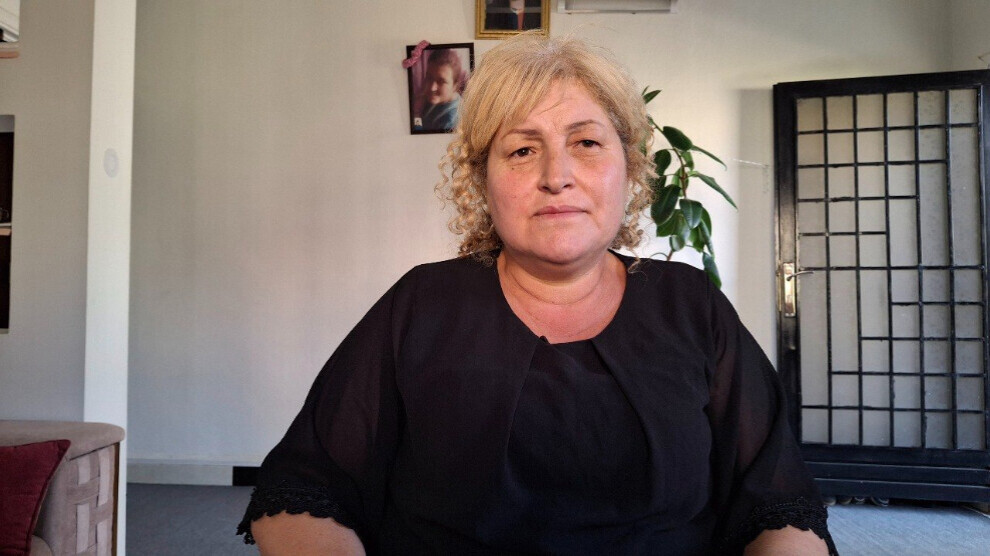“The Niqab-Imposing Campaign Marginalizes Women and Reinforces Patriarchal Mindsets”
Human rights activist Ramal Al-Hamad emphasized that the campaign to impose the niqab in areas under the control of Hay’at Tahrir al-Sham (HTS) is a direct threat to personal freedoms and a reinforcement of women’s marginalization.

Rochelle Junior
Suwayda- Several Syrian regions known for their social and cultural diversity are witnessing controversial campaigns led by HTS militants to enforce the wearing of the niqab on women. These efforts have sparked widespread rejection among women’s rights advocates.
Since the beginning of the Syrian crisis, as political and security conditions deteriorated, women have particularly suffered from drastic changes in their social and political status. Extremist movements that emerged in certain areas have been part of this shift, imposing severe restrictions on women’s rights. One of the most striking examples is the campaign to force women to wear the niqab in territories controlled by HTS.
This campaign has provoked public and human rights outrage. Women’s rights activist Ramal Al-Hamad expressed her firm rejection of the initiative, viewing it as a real threat to personal freedom and women’s rights in Syria:
“As Syrian women who have fought for over 14 years for our freedom and rights within society, we cannot accept a return to an era of stricter rule that erases women’s roles and seeks to marginalize us,” she said.
Al-Hamad noted that the campaign does not stop at imposing the niqab but also includes escalating threats against women who refuse to wear it.
She stressed that the impact of this campaign extends beyond non-veiled women—it affects all women, who are viewed as lacking “moral and social values” if they do not adhere to the imposed standards. One of the most troubling aspects, she added, is the blending of religion with politics, emphasizing that separating the two seems impossible in this context.
Al-Hamad clarified that the essence of religion does not mandate the niqab as a condition for a woman’s virtue. “Religion is built on love, tolerance, and freedom,” she affirmed, warning that some groups are exploiting religion as a political tool to dominate women—a practice completely rejected by Syrian women. She underscored the importance of separating religion from politics.
She further voiced categorical opposition to any attempts by political authorities to impose specific clothing or religious practices, asserting that religion should not be used as an instrument of control over society or a means to marginalize women.
According to Al-Hamad, the campaign will have severe psychological and social repercussions for women in areas under HTS control.
“Even veiled women face social pressure if they do not wear the niqab. This negatively affects their mental well-being, making them feel ashamed or inferior in society’s eyes,” she explained.
This discrimination, she added, is not only social but professional as well, as there are real fears that non-niqab-wearing women could lose their jobs or be deemed noncompliant, harming their careers and personal lives.
Al-Hamad emphasized the need for Syrian women to stand firmly united in rejecting this campaign. “Solidarity among women from all sects and backgrounds is now essential to protect our rights. If we fail to stand together, everything we’ve fought for over the past years will be at risk.”
She added that Syrian women do not want their country to become another Afghanistan, where freedoms are suppressed in the name of religion. They reject any transformation of Syrian society into a purely patriarchal system that ignores women’s rights and sidelines their role.
In conclusion, Ramal Al-Hamad, who identifies as a member of the Druze community, highlighted that each religious sect in Syria has its own traditions and practices. She firmly rejected any attempt by any authority to impose religious practices on members of other sects. The Druze, she stated, remain committed to their unique customs in worship and dress, and they refuse external interference in their religious affairs.
While expressing deep respect for all religions, she rejected their misuse as instruments of oppression or tools for controlling women.
